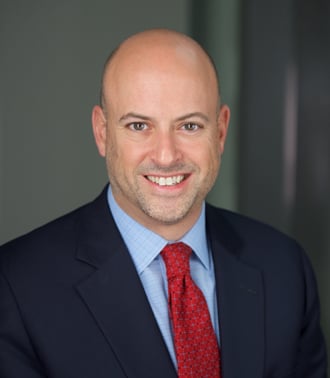Lit Alerts—June 2017
Class Action Fairness Act: Ninth Circuit Clarifies That Consolidating Actions for Non-binding Bellwether Trials Does Not Permit Removal to Federal Court Under CAFA's "Mass Action" Provision
In April, the Ninth Circuit ruled in Dunson v. Cordis Corp. that a defendant is not entitled to remove cases to federal court based on the Class Action Fairness Act of 2005 (CAFA) when plaintiffs consolidate lawsuits with identical claims "for purposes of pretrial discovery and proceedings, along with the formation of a bellwether-trial process."
The decision hinged on the fact that although CAFA permits removal when "monetary relief claims of 100 or more persons are proposed to be tried jointly on the ground that the plaintiffs' claims involve common questions of law or fact," proposing a bellwether trial system is not necessarily equivalent to trying each plaintiff's case jointly. The defendant argued that the plaintiffs' statement that they intended to create a "bellwether-trial process" meant the plaintiffs intended their claims to be tried together. The Ninth Circuit relied on statements by the plaintiffs that they were seeking consolidation merely to enable a single judge to oversee common discovery and pretrial proceedings as a means of ensuring that each plaintiff received similar treatment, not to conduct a single trial for all plaintiffs' claims.
The Ninth Circuit differentiated between binding bellwether trials, which bind all plaintiffs on issues they have in common with the bellwether trial, and non-binding bellwether trials, which have no legal effect on other plaintiffs' cases and are only used to inform parties of their chances of success and to promote settlement. Because the Ninth Circuit determined the bellwether trials proposed by the plaintiffs were non-binding, the defendant was unable to prove that the plaintiffs had asked to hold a joint trial of their claims, and therefore could not remove the cases to federal court under CAFA.
Securities: Ninth Circuit Extends Omnicare Standards to Statement of Opinion Securities Exchange Act 10(b) Claims
The Ninth Circuit affirmed a district court's decision to dismiss a pension fund's putative securities class action in City of Dearborn Heights Act 345 Police & Fire Retirement System v. Align Technology, Inc. in May (see Arnold & Porter's Advisory). The plaintiffs, purchasers of Align Technology, Inc. stock, alleged that the defendant violated Sections 10(b) and 20(a) of the Securities Exchange Act of 1934, and SEC Rule 10b-5, by making seven materially false and misleading statements regarding Align's goodwill valuation of its subsidiary, Cadent Holdings, Inc.
The parties disputed the proper standard for pleading falsity of opinion statements in claims under Section 10(b) of the Securities Exchange Act. Following a close examination of the Supreme Court's 2015 Omnicare decision, the Court held that Omnicare's three different standards for pleading falsity of opinion statements also apply to Section 10(b) claims.
Under these standards, when a plaintiff relies on the theory that a statement of fact contained in an opinion statement is materially misleading, the plaintiff must allege that "the supporting fact [the speaker] supplied [is] untrue." Here, plaintiffs' complaint contained no allegations of subjective falsity (i.e., that the speaker did not honestly hold the opinion when the statement was made), and plaintiffs failed to plead sufficient facts that would allow the Court to infer subjective falsity. Thus, the Ninth Circuit ultimately found that the pleadings relating to the alleged misstatements did not satisfy the high falsity standard set forth in Omnicare.
With this decision, the Ninth Circuit joins the Second Circuit in applying the heightened Omnicare falsity standard to statement of opinion Securities Exchange Act 10(b) claims.
Discovery: Arkansas Federal Court Orders Production of Investigator's Reports Over Claims of Privilege
An Arkansas federal judge this month rejected Wal-Mart's "conclusory" assertion that an in-house investigation was protected from discovery by the attorney-client privilege and work product doctrine. The case, City of Pontiac General Employees' Retirement System v. Wal-Mart, Inc., is a securities fraud class action brought by a class of investors who claimed that Wal-Mart artificially inflated its stock price by failing to disclose an alleged bribery scheme by a Wal-Mart subsidiary in Mexico.
During discovery, the plaintiffs deposed a former Wal-Mart investigator who had reviewed business records and interviewed fact witnesses about the events in Mexico. At the deposition, Wal-Mart asserted that much of the investigator's work was protected by the attorney-client privilege or work product doctrine and instructed him not to answer certain questions. The plaintiffs claimed they were entitled to fully examine the investigator and to all of the investigator's factual reports.
The Court agreed with the plaintiffs, noting that the party asserting the attorney-client or work product privilege bears the burden of showing that privilege applies. The Court explained that "all that [Wal-Mart has] offered as evidence are general, conclusory assertions by counsel that litigation was anticipated," and that "[i]f this was sufficient, it would render the burden to establish the protection meaningless." Accordingly, the Court ordered Wal-Mart to produce the investigator for a second deposition of and to produce his interview reports and other factual compilations.




